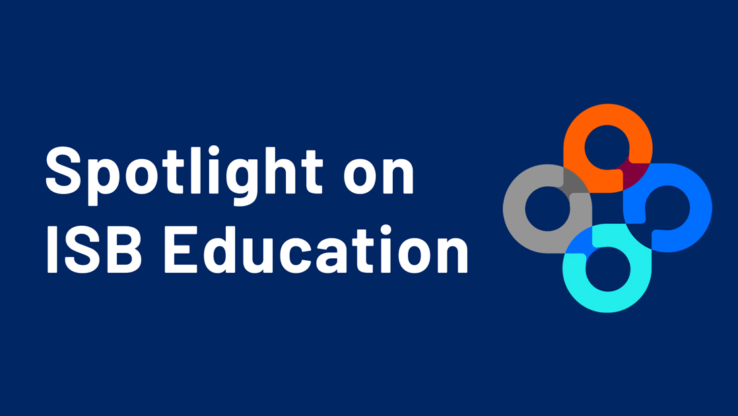INTEGRATED VARIANTS FROM 13,000 COMPLETE GENOMES AVAILABLE TO PUBLIC IN KAVIAR DATABASE
 isbscience.org/news/2015/09/22/integrated-variants-from-13000-complete-genomes-available-to-public-in-kaviar-database/
isbscience.org/news/2015/09/22/integrated-variants-from-13000-complete-genomes-available-to-public-in-kaviar-database/
FOR IMMEDIATE RELEASE
SEATTLE, WA and FALLS CHURCH, VA, Sept. 23, 2015—The Institute for Systems Biology (ISB) and the Inova Translational Medicine Institute (ITMI) announced today a new release of Kaviar, the most comprehensive collection of human genomic variants currently available to the public. This release expands on the January 2015 release most notably by the addition of 3842 whole genome sequences provided by ITMI. Inova, a not-for-profit healthcare system based in Northern Virginia, founded ITMI to transform healthcare from a reactive to a predictive model.
First described in Glusman et al., Bioinformatics. 2011, Kaviar answers the question: “Has this variant been seen before, and if so, how often?” Kaviar currently lists 169 million SNV (single nucleotide variant) sites and 48 million indels and substitutions.
Kaviar combines 31 public data sources plus 4622 private whole genome sequences. Kaviar integrates genome variation data from 77,238 unrelated individuals, including the 1000 Genomes Project’s data, UK10K COHORT allele frequencies representing 3781 individuals, the Exome Aggregation Consortium (ExAC) 63,000 exomes, and 808 whole genomes from the Alzheimer’s Disease Neuroimaging Initiative (ADNI). Diversity is enhanced by the inclusion of data from the Simons Foundation Diversity Project and several population-specific data sources. Very rare variants in private data (those observed in fewer than 3 individuals) are omitted from Kaviar to protect the privacy of the individuals.
Kaviar is accessible at db.isbscience.net/kaviar, where users may query the database via a web interface. Kaviar accepts queries for genomic locations, then reports which variants have been observed at those locations, and at what frequency. Kaviar can also be queried programmatically via a web service. Users may also download the complete Kaviar database in variant call format (VCF) and use common software tools to query it.
ISB produces regular updates to Kaviar, incorporating updates to dbSNP, newly obtained genome sequences, and improvements in the reference assembly. An upcoming release will contain genotype frequencies in addition to the allele frequencies.
Media Contacts:
Tony Raker
PR & Crisis Communications Officer
Inova Health System
703-645-2736
Tony.Raker@inova.org
Hsiao-Ching Chou
Director of Communications
Institute for Systems Biology
206-732-2157
hchou@isbscience.org
About the Institute for Systems Biology: The Institute for Systems Biology is a nonprofit biomedical research organization based in Seattle, Washington. It was founded in 2000 by systems biologist Leroy Hood, immunologist Alan Aderem, and protein chemist Ruedi Aebersold. ISB was established on the belief that the conventional models for exploring and funding breakthrough science have not caught up with the real potential of what is possible today. ISB serves as the ultimate environment where scientific collaboration stretches across disciplines, where our researchers have the intellectual freedom to challenge the status quo, and where grand visions for breakthroughs in human health inspire a collective drive to achieve the seemingly impossible. Our core values ensure that we always keep our focus on the big ideas that eventually will have the biggest impact on human health. Since 2000, ISB has grown to about 200 staffers, which includes 9 faculty members and laboratory groups. See more at isbscience.org
About the Inova Translational Medicine Institute: The Inova Translational Medicine Institute (ITMI) is a not-for-profit research institute delving into the genomics component of personalized medicine. ITMI is utilizing genomic and clinical information from patients to develop innovative methods for personalized patient care. Studies at the Institute have generated a large genomic and clinical data set that can be used as data in a variety of fields, from computational biology to psychology as well as more obvious biomedical research applications. ITMI’s goal is to utilize information from its studies to better understand and predict the onset of disease, leading to the implementation of preventive medicine based on the unique genomics of the individual patient.
About Inova: Inova is a not-for-profit healthcare system based in Northern Virginia that serves more than 2 million people each year from throughout the Washington, DC, metro area and beyond. Inova is a comprehensive network of hospitals, outpatient services and facilities, primary and specialty care practices, and health and wellness initiatives. Inova encompasses the full array of health services, including the area’s only Level 1 Trauma Center and Level IV neonatal intensive care unit (NICU). We are home to many nationally and internationally recognized programs, including Inova Heart and Vascular Institute (IHVI), Inova Translational Medicine Institute (ITMI), and the Inova Dwight and Martha Schar Cancer Institute. Inova is a global leader in developing and applying personalized health. Connecting researchers, clinicians and empowered consumers, we integrate genomic research for patient care, prevention and wellness. Our personalized health approach enables individuals to live longer, healthier lives. More information and statistics about Inova is at www.inova.org.




